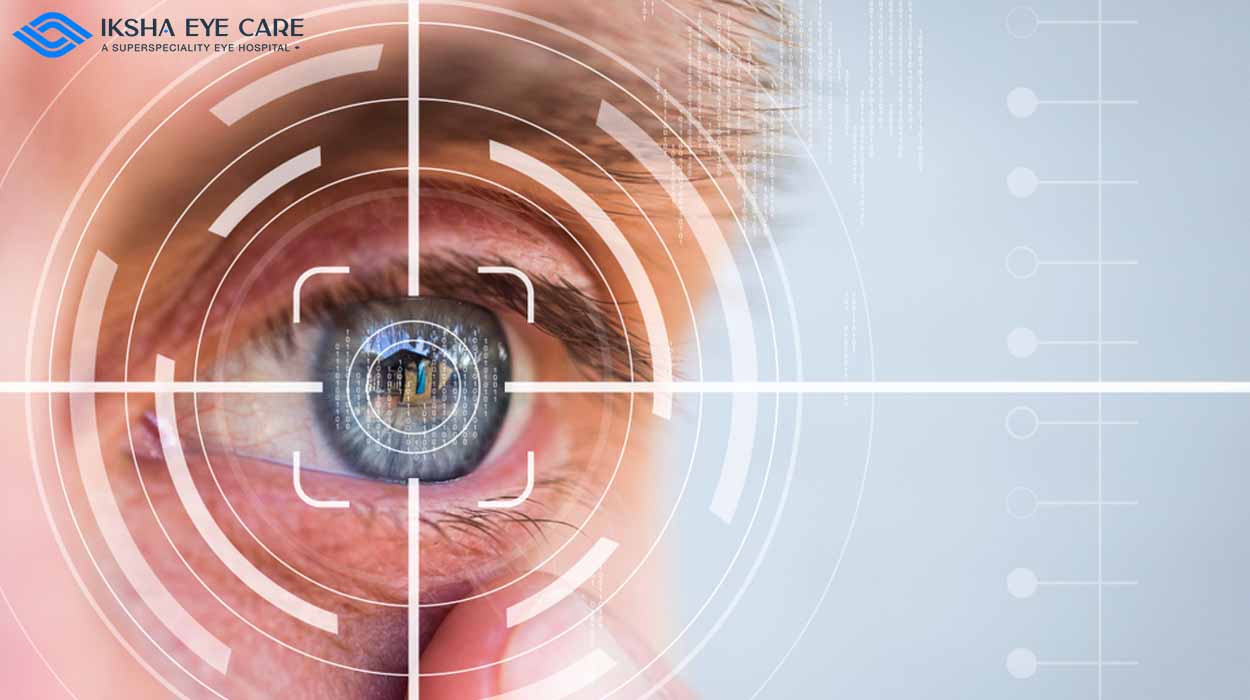Understanding the Numerous Eye Issues Dealt With by Specialized Eye Care Professionals
In the world of eye care, specialized professionals play an important role in identifying and treating a vast range of eye conditions. From usual refractive errors that affect vision clearness to age-related conditions that posture difficulties as we get older, the proficiency of these specialists includes handling vision-threatening diseases and detailed corneal conditions. The complexities of neurological eye problems present one-of-a-kind challenges that require specialized care. As we start this expedition of the numerous eye conditions resolved by specialized eye care specialists, it becomes obvious that the intricate internet of ocular health and wellness holds a myriad of remarkable insights waiting to be discovered.
Typical Refractive Mistakes
Refractive errors are common visual problems caused by an imperfection in the eye's capacity to appropriately concentrate light, resulting in blurred vision. Astigmatism is characterized by an irregularly designed cornea, resulting in altered or blurred vision at all distances. Presbyopia is an age-related problem where the lens sheds its versatility, making it challenging to focus on close things.
These refractive errors can be remedied through numerous techniques, including spectacles, get in touch with lenses, or refractive surgical procedure. Eye treatment specialists play a critical role in identifying and taking care of refractive mistakes to help individuals achieve clearer vision and improve their top quality of life.
Age-Related Eye Problems
One of the most common age-related eye problems is age-related macular deterioration (AMD), a condition that triggers main vision loss and can make tasks like analysis and driving tough. Cataracts, an additional usual problem amongst older people, trigger clouding of the eye's natural lens, leading to blurred vision. Regular eye exams with specialized eye care professionals are essential for early discovery and administration of these age-related eye problems to preserve vision and maintain eye wellness as people grow older.
Vision-Threatening Diseases
Vision-threatening conditions include an array of serious ocular problems that have the prospective to dramatically affect an individual's eyesight and total visual function. These conditions posture a danger of long-term vision loss if not without delay detected and treated by specialized eye care experts. Some usual vision-threatening illness include glaucoma, diabetic person retinopathy, age-related macular degeneration (AMD), and retinal detachment.
Glaucoma is a team of eye problems that damage the optic nerve, usually due to high intraocular pressure, leading to find more outer vision loss and potential loss of sight if left untreated. AMD is a modern condition impacting the macula, leading to central vision loss.
Early discovery, regular eye examinations, and timely intervention are critical in handling vision-threatening conditions to preserve vision and keep high quality of life. Specialized eye treatment professionals play a crucial duty in diagnosing, treating, and managing these problems to avoid irreversible vision loss.

Corneal Disorders
Corneal disorders include a spectrum of problems that affect the clear front part of the eye, recognized as the cornea. These problems can cause discomfort, aesthetic disturbances, and in serious cases, vision loss. One typical corneal disorder is keratoconus, where the cornea thins and protrudes outward into a cone shape, creating astigmatism and blurred vision. Corneal dystrophies, such as Fuchs' dystrophy, lead to gradual vision loss because of abnormal deposits in the cornea. Corneal abrasions, often triggered by injury or international objects, can cause pain, redness, and sensitivity to light. Furthermore, infections like keratitis can irritate the cornea, potentially bring about scarring and vision impairment otherwise promptly treated. Therapy for corneal conditions differs depending on the certain problem but might consist of medications, get in touch with lenses, or in extreme instances, corneal transplants. Regular eye exams are essential for early detection and monitoring of corneal problems to protect vision and eye wellness.
Neurological Eye Problems
Neurological eye problems entail conditions that influence the link in between the eyes and the mind, affecting aesthetic his comment is here processing and general eye function. These conditions can manifest in various means, affecting vision, eye motions, and also the sychronisation between the eyes. One common neurological eye condition is optic neuritis, characterized by swelling of the optic nerve bring about vision loss, shade desaturation, and discomfort with eye motion.
An additional considerable condition is nystagmus, where the eyes make repeated, uncontrolled movements, influencing aesthetic acuity and depth perception. In addition, conditions like amblyopia, typically referred to visit this website as "careless eye," arise from unusual visual growth in very early youth, resulting in reduced vision in one eye.
Neurological eye problems call for customized care from professionals like neuro-ophthalmologists that have proficiency in both neurology and ophthalmology. Medical diagnosis usually includes an extensive eye exam, imaging researches, and partnership with specialists to address the underlying neurological problems influencing the aesthetic system. Therapy techniques can include drug, vision therapy, or in extreme cases, surgical treatments to manage these complex problems successfully.

Final Thought
Finally, specialized eye care professionals deal with a vast array of eye conditions, including common refractive mistakes, age-related eye conditions, vision-threatening diseases, corneal disorders, and neurological eye problems - refractive surgeries in al. By comprehending these various problems and looking for proper treatment from eye treatment experts, individuals can maintain ideal eye health and wellness and vision. It is very important to prioritize regular eye examinations and adhere to suggested treatment strategies to preserve and protect one's vision for the future